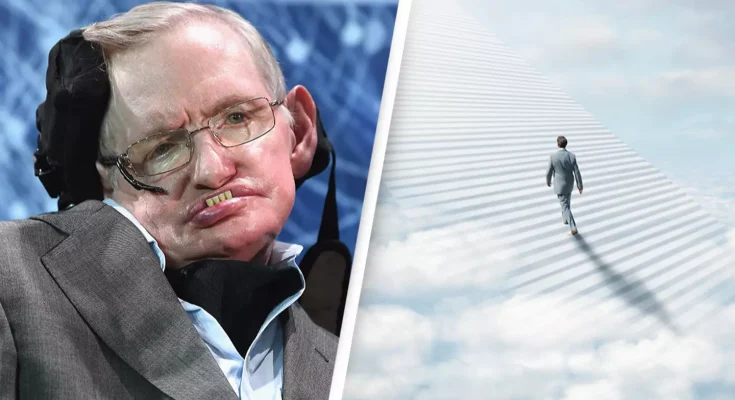When asked if he believed in God and heaven, the late Stephen Hawking had a simple reply.
Science and religion can often be at odds with each other – creation vs the big bang theory, miracles vs scientific explanation.
So, you may be interested to know whether legendary scientist Stephen Hawking believed in God.
Hawking, who died in 2018 at the age of 76, was a world-renowned theoretical physicist, cosmologist and author.
He is best-known for his 2002 book, The Theory of Everything: The Origin and Fate of the Universe, as well as his work in the fields of general relativity and quantum gravity.
You can hear the late scientist’s views on God and the afterlife here:
Hawking was diagnosed with Amyotrophic Lateral Sclerosis (ALS) – a type of motor neurone disease – in 1963, when he was just 21-years-old.
At the time, he was warned by doctors that he had just two years to live, and although he managed to completely defy the initial prognosis, Hawking’s ability to move and communicate deteriorated over time and he later communicated using an advanced computer system.
The computer was in the form of a tablet mounted to the arm of his wheelchair and was powered by the wheelchair’s batteries.
There was a keyboard on the screen, which was controlled by detecting his cheek movements, allowing Hawking to type out what he wanted to say.
When he died aged 76, he was the longest living ALS survivor in history.
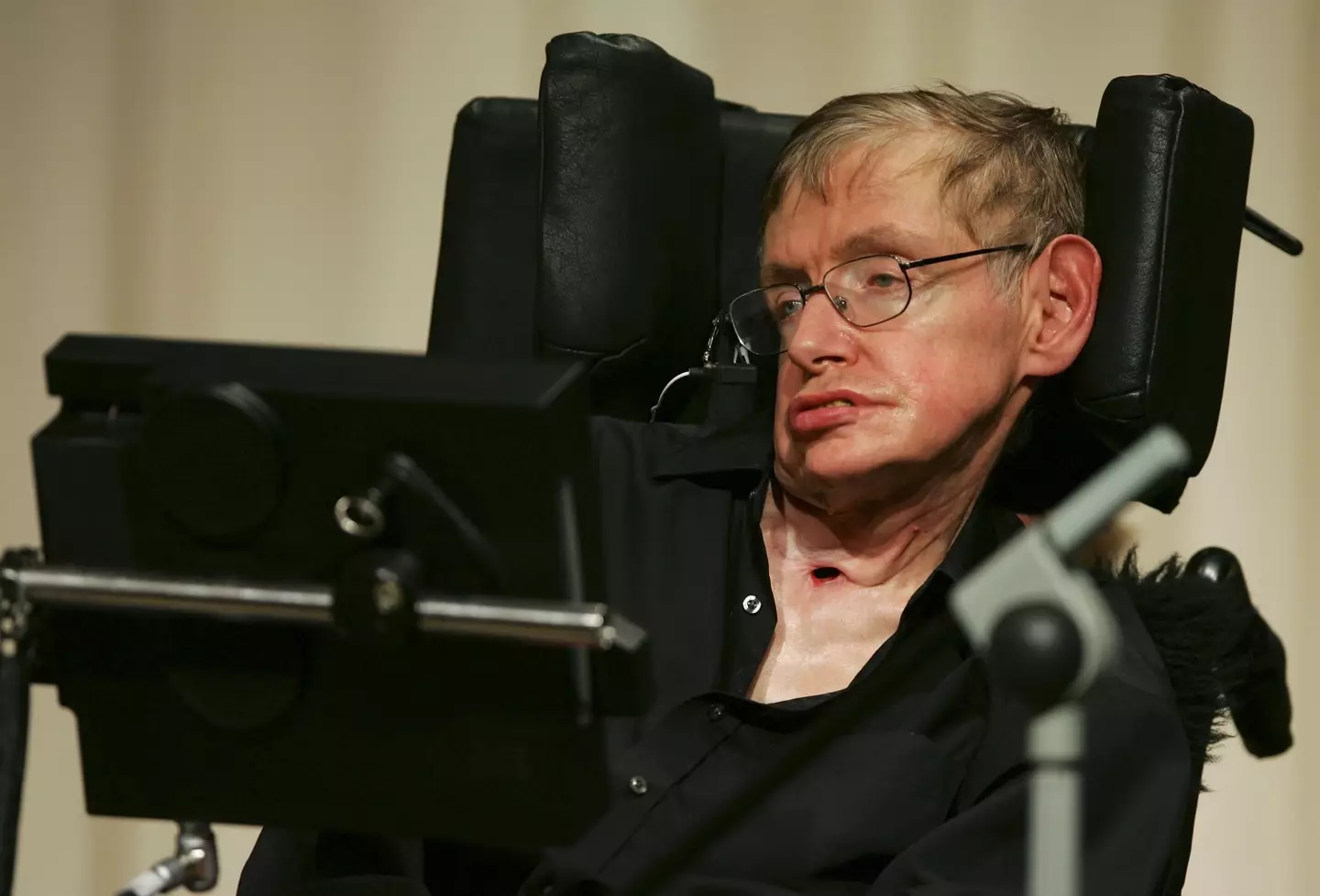
In his final book, Stephen Hawking shared his opinion on whether God and heaven were real (Cancan Chu/Getty Images)
Hawking referenced his disability in his final book, Brief Answers to the Big Questions, writing: “For centuries, it was believed that disabled people like me were living under a curse that was inflicted by God.
“Well, I suppose it’s possible that I’ve upset someone up there, but I prefer to think that everything can be explained another way, by the laws of nature.
“If you believe in science, like I do, you believe that there are certain laws that are always obeyed. If you like, you can say the laws are the work of God, but that is more a definition of God than a proof of his existence.”
He then went on to share his opinions on the possibility of a God or life after death.
“We are each free to believe what we want and it’s my view that the simplest explanation is there is no God,” he explained.
“No one created the universe and no one directs our fate. This leads me to a profound realization, there’s probably no Heaven and no afterlife, either.
“We have this one life to appreciate the grand design of the universe and for that I am extremely grateful.”
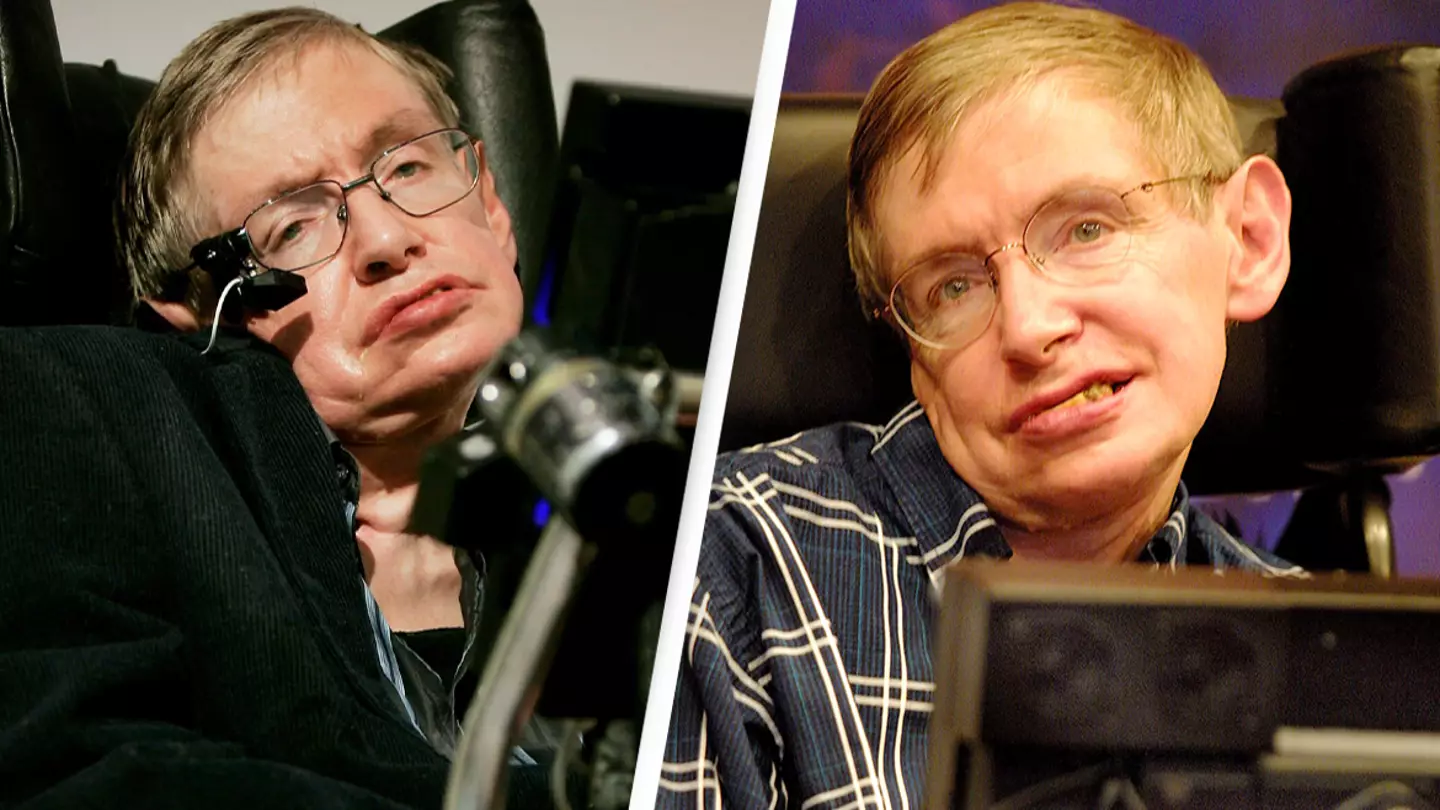
Stephen Hawking had eye-opening final warning for humanity before he died
The physicist had a very strong message to share with people before he died

Kit Roberts
Physicist Stephen Hawking had a chilling message for humanity before his death in 2018.
Back in 2018, we had yet to see the likes of become an increasingly influential part of our lives.
Understandably as their popularity rises, many people are becoming increasingly concerned about the development of these artificial intelligence tools.
Actors‘ union SAG-AFTRA and the Writers’ Guild of America even included a clause about AI during their months’ long strike, demanding assurances it would not be used to replace humans in the film industry.
And it seems that they were not the only people who are worried about the technology.
In 2014, Stephen issued a stark warning in an interview with the BBC about the dangers of AI.
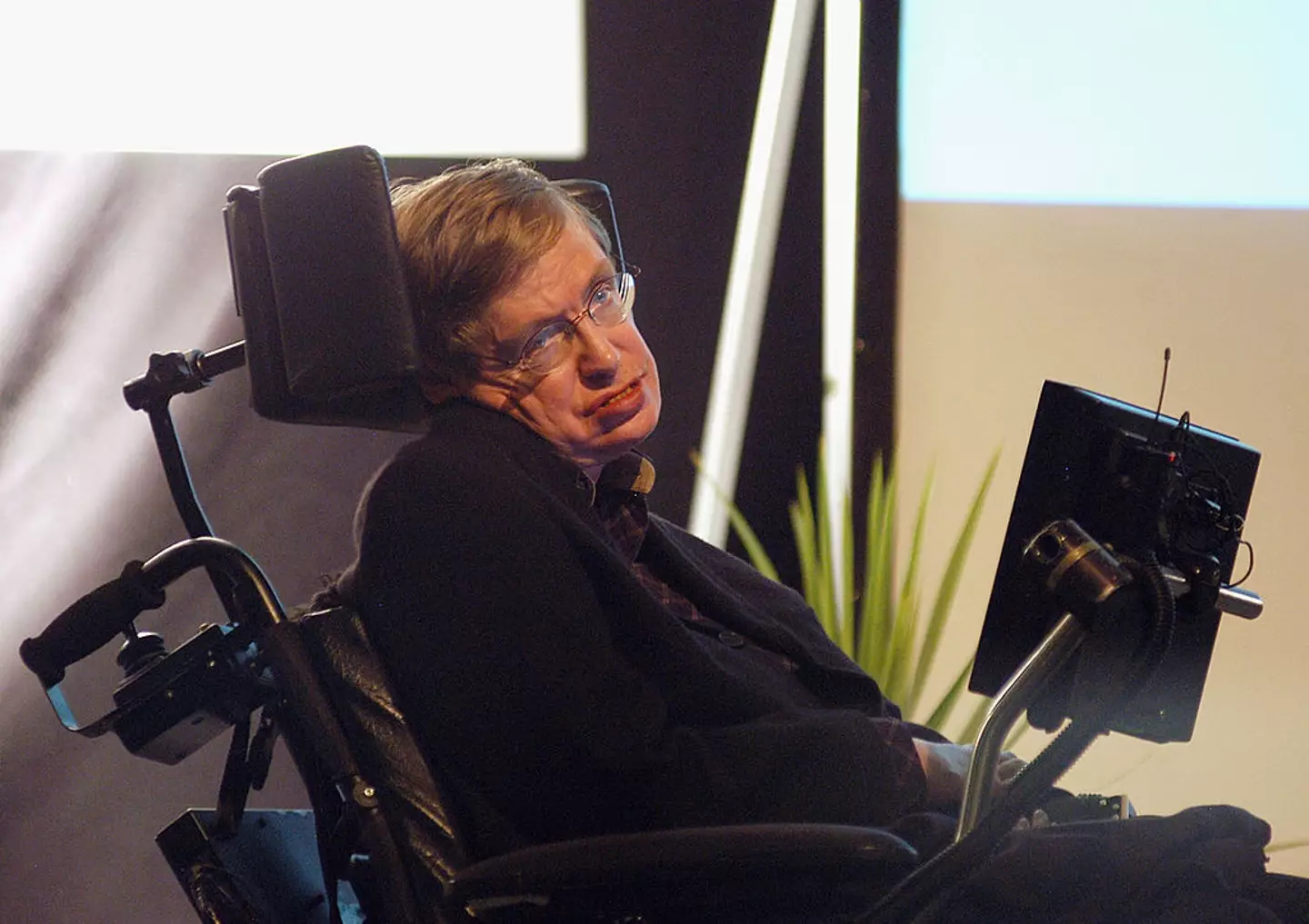
Getty Images
He said, bluntly: “The development of full artificial intelligence could spell the end of the human race.”
The physicist added that the AI could end up snowballing out of our control, saying: “It would take off on its own, and re-design itself at an ever increasing rate.”
You have to admit, given the enormous amount of science fiction which has specifically warned about the dangers of artificial intelligence, it’s a little disconcerting just how little heed its developers appear to be paying to those warnings.
Whether it’s Terminator or The Matrix, things tend not to end well for humanity when AI gets involved.
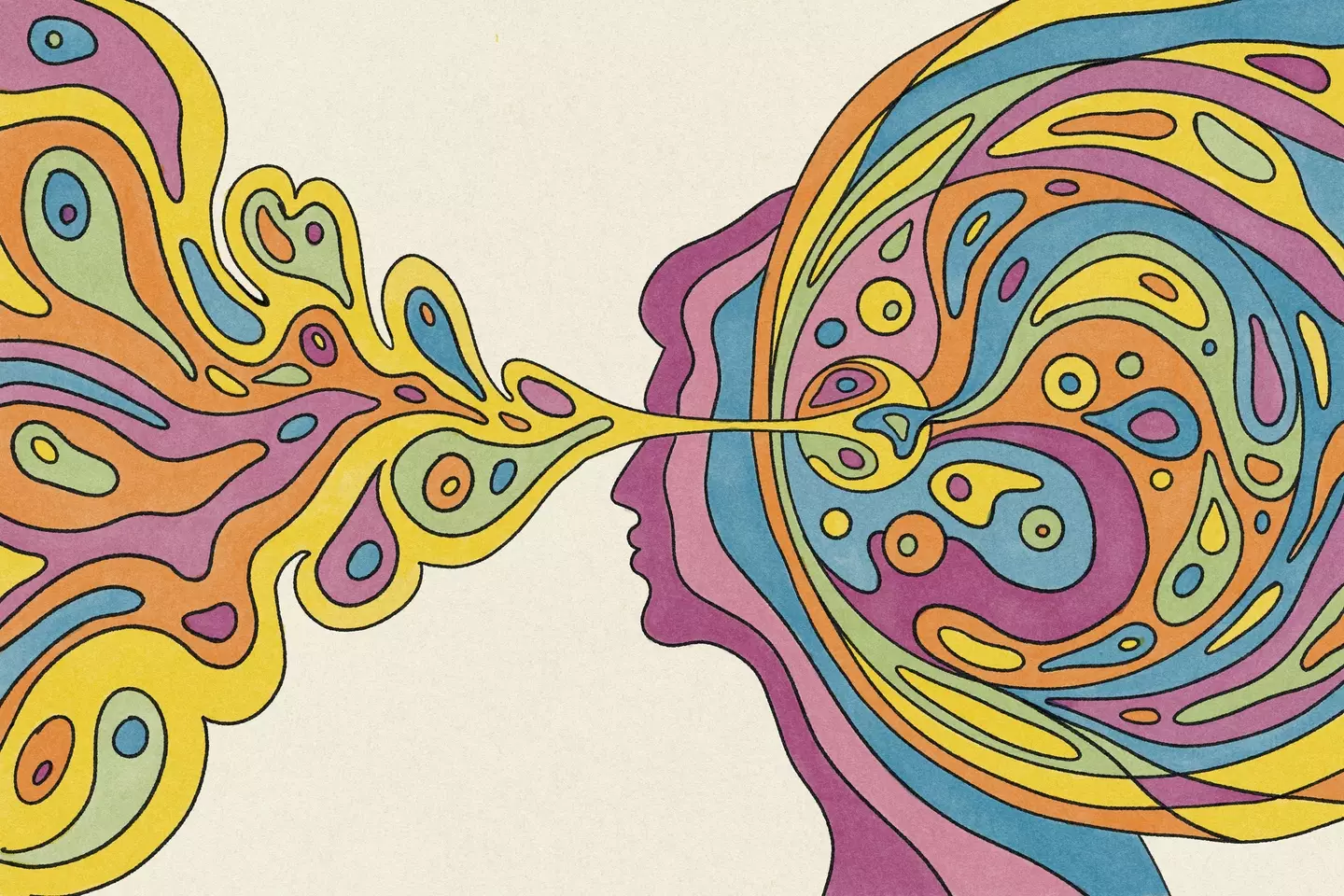
Eugene Mymrin / Getty Images
These aren’t the only sci-fi works to deal with it either – Frank Herbert’s Dune includes a whole piece of fictional history called the ‘Butlerian Jihad’.
The result of this is that in the Dune universe, the ‘duniverse’, the design and building of AI is actively prohibited.
Now, it’s probably worth mentioning that what we have at the moment is not ‘true’ AI in the sense that it’s conscious.
At present the AI systems we use use huge databanks to assemble images or words.
So if you asked a programme like Midjourney to make an image of Joe Biden in the style of Vincent Van Gogh, it would draw on its database of Van Gogh paintings and pictures of Joe Biden and combine them.

Midjourney
While this isn’t The Matrix level AI, it’s still hugely dangerous as it makes it much easier to create fake images of someone, which can be very convincing even if you know what to look for.
It’s not without limitations though. The flood of AI-generated images onto the internet has already started to lead to ‘inbred’ images, where software draws on images generated by AI rather than original images, resulting in poorer output
Nonetheless, the speed of development still leave many just as concerned as Hawking about what AI might mean for the future.
Featured Image Credit: Bruno Vincent/Getty Images / Liang Zhen/WireImage/Getty
Topics: News, US News, UK News, World News
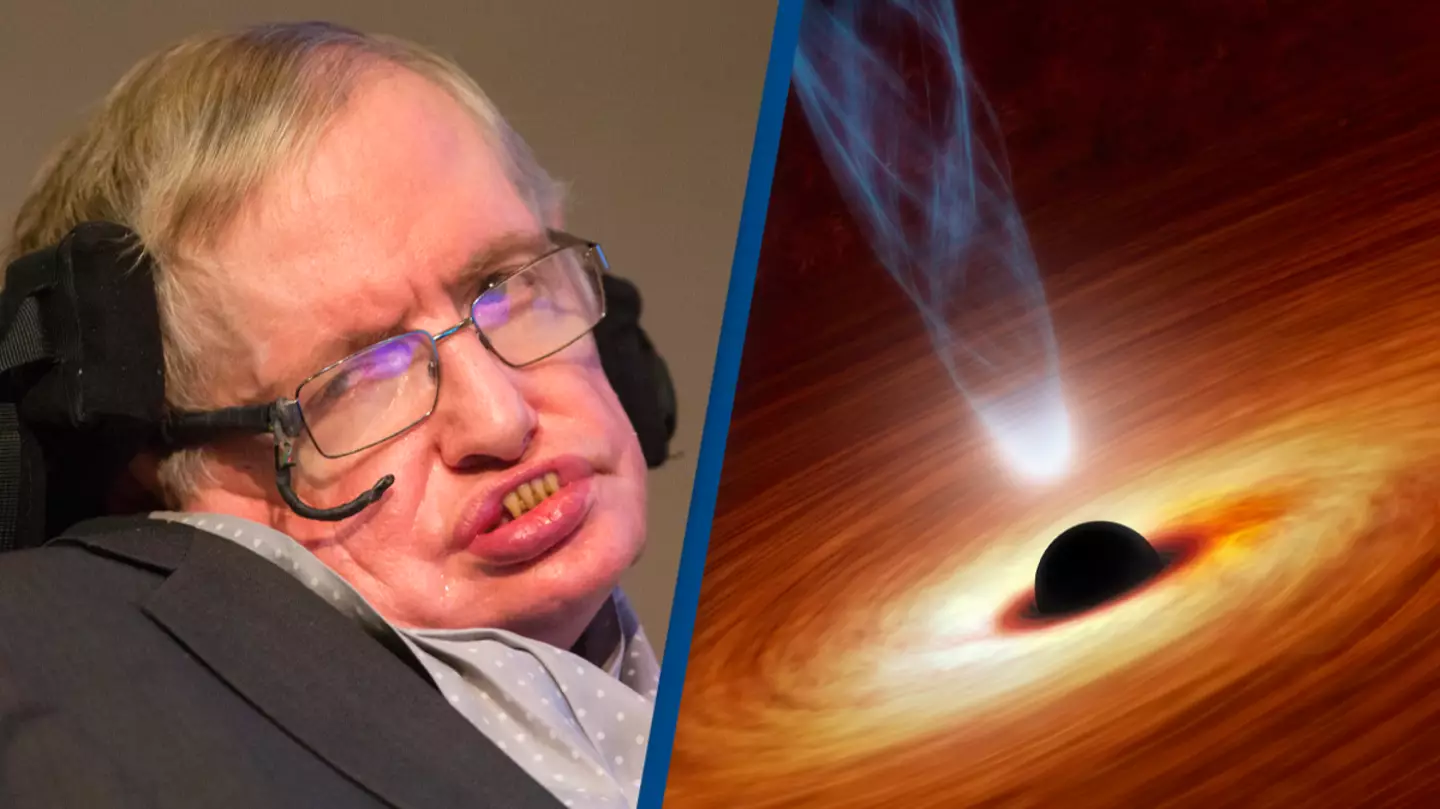
Stephen Hawking had a famous black holes dying theory which could mean our entire universe is doomed
Another thing to add to your list of stuff to worry about

Amelia Jones
Looking for something else to add to your growing list of anxieties to keep you awake at night? A new study has found that the late Stephen Hawking’s famous theory of how black holes die could mean our entire universe is doomed to evaporate.
The English theoretical physicist made the prediction back in 1974 that black holes die by evaporating in a now-famous theory known as ‘Hawking radiation’.
According to quantum physics theory and Einstein’s theory of gravity, particles spontaneously form and annihilate under an intense gravitational environment located at the mouths of black holes, aka the event horizon.
According to Hawking’s radiation theory calculations, some particles remain trapped behind the event horizon, while others escape to the outside in the form of Hawking radiation.
When enough particles escape over a period of time in a gradual draining of energy, the entire black hole will simply evaporate.
And with Hawking radiation being observed around a black hole in our universe, it seems the late, great genius’ predictions were correct.
But at the time, that was the only place scientists were looking for the phenomenon.
But a new study published in the journal Physical Review Letters is set to radically revise that theory.
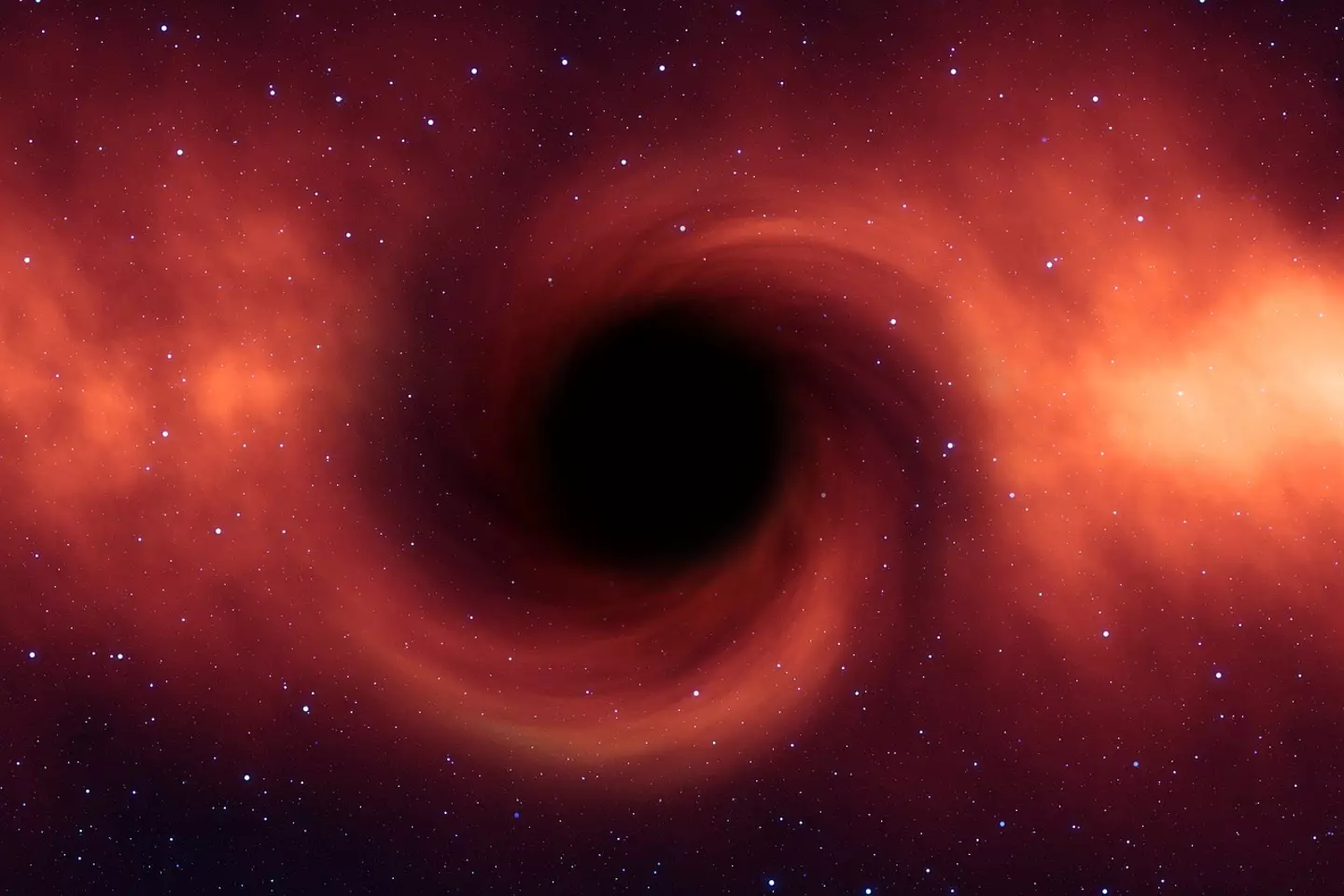
Pixabay/Gerd Altmann
It suggests that Hawking radiation isn’t just created by stealing energy from black holes with immense gravitational environments – but from all objects with enough mass to warp the fabric of spacetime.
Translation: all objects with mass could eventually just disappear, that’s according to scientists from Radboud University who were mulling over this theory.
Heino Falcke, who led the study, explained in a statement on Friday (2 June): “Objects without an event horizon, such as the remnants of dead stars and other large objects in the universe, also have this sort of radiation.
“And, after a very long period, that would lead to everything in the universe eventually evaporating, just like black holes.”
He added: “This changes not only our understanding of Hawking radiation but also our view of the universe and its future.”
Study co-author, Walter van Suijlekom, continued: “We show that far beyond a black hole the curvature of spacetime plays a big role in creating radiation.”
What the researchers’ theory means in reality isn’t clear and their calculations will need further testing before they’re confirmed.
It seems that thankfully it’s nothing that’s going to happen in the near future if their calculations are correct.
It’s estimated that it takes black holes longer than the current age of the universe to evaporate, so no need to stress just yet.
Featured Image Credit: Mark Thomas / Alamy Stock Photo / B.A.E. Inc. / Alamy Stock Photo
